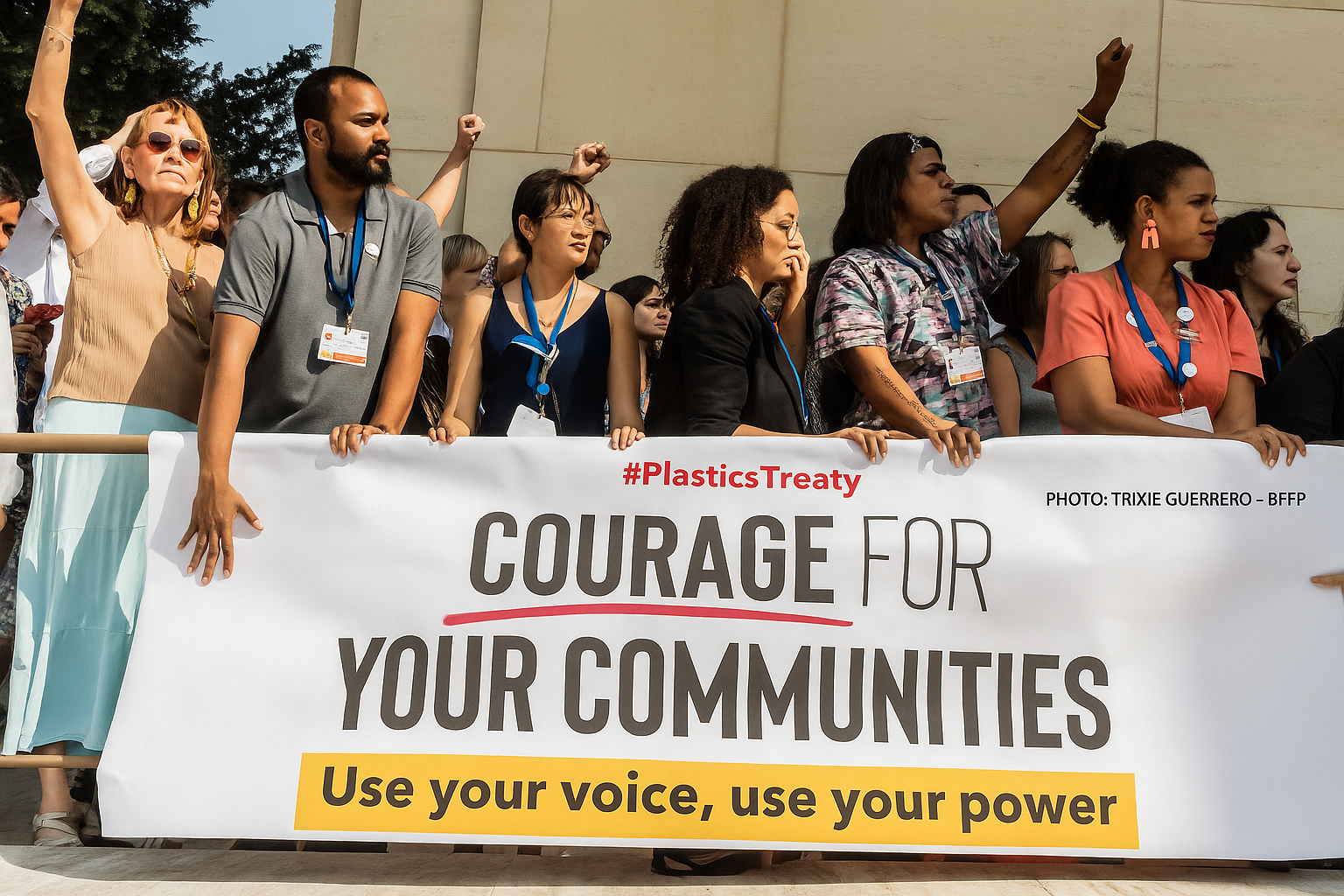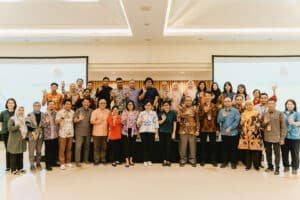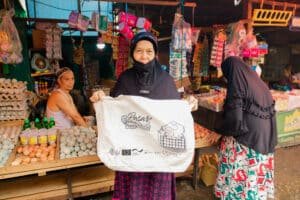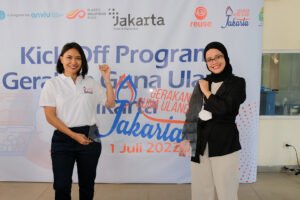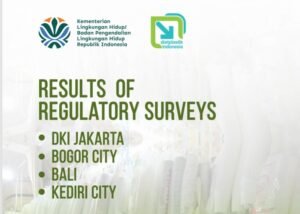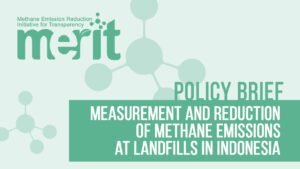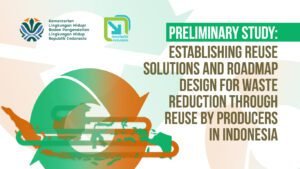Geneva, 13 August 2025 – Plasticdiet Indonesia and the Indonesian Reuse Association (AGUNI) express deep concern over the extreme weakness of the Chair’s Draft Text Proposal released on 13 August 2025 during the Intergovernmental Negotiating Committee (INC-5.2) for the Global Plastics Treaty. The document neglects proven upstream solutions to prevent plastic pollution, especially reuse/refill systems, which have already been effectively implemented in multiple cities across Indonesia.
The draft contains no global targets for reuse/refill and no dedicated article to mandate a systemic transition toward reuse models. Reuse is mentioned only briefly in the product design article, without clear reporting or performance evaluation mechanisms. Worse still, the provision on plastic production reduction has been completely removed, while clauses on hazardous chemicals and public health have also been deleted. As a result, the burden of addressing plastic pollution remains on downstream measures, while the plastic industry is left free to produce without limits.
“INC-5.2 is a critical moment for all countries, including Indonesia, to demonstrate leadership in addressing the global plastic crisis. This forum is a collective opportunity to strengthen ambitious reuse provisions, set binding international quantitative targets, and reduce single-use plastic production. With its innovation potential and a growing reuse business ecosystem, Indonesia can be a living example of how this transition can be achieved. Strong policy support will ensure the sustainability of businesses that have invested in this sector, while delivering benefits for both the environment and the national economy,” said Bintang Ekananda, CEO of Alner and co-founder of AGUNI.
Given the framework of the Chair’s Draft Text, Plasticdiet Indonesia and AGUNI urge the Indonesian delegation at INC-5.2 to prioritize reinstating a toxic-free reuse/refill article with binding quantitative targets and robust reporting mechanisms; affirming plastic production reduction as a core strategy to support reuse and prevent pollution; and ensuring that product health and safety are strictly regulated, including banning hazardous chemicals.
“This Chair’s Text is extremely weak in addressing upstream plastic pollution solutions, particularly reuse systems. There are no global reuse/refill targets, no article mandating systemic transition, and no plastic production reduction. Provisions on hazardous chemicals and public health have been deleted, despite being crucial for safe reuse systems. Indonesia already has reuse/refill initiatives in multiple cities and has the potential to lead in making reuse a central pillar of this treaty,” stressed Rahyang Nusantara, Deputy Director of Plasticdiet Indonesia.
Plasticdiet Indonesia and AGUNI emphasize that a global plastics treaty that fails to cut plastic production and establish binding reuse targets will amount to nothing more than a waste management treaty—not a true plastics treaty that addresses the full life cycle of plastics, as mandated by UNEA Resolution 5/14.
With negotiation time running out, Indonesia’s position will determine whether the world moves toward a future free from single-use plastics, or remains stuck in a status quo that continues to damage the environment, public health, and future generations.
Media Contact:
📧 contact@plasticdiet.id / aguni@plasticdiet.id
📞 +62 811-2441-901
AGUNI Observers at INC-5.2, Geneva, Switzerland | 5–14 August 2025
Rahyang Nusantara – Deputy Director, Dietplastik Indonesia
With over a decade of experience in environmental campaigns, particularly in plastic waste reduction advocacy, Rahyang is currently focused on building a robust reuse ecosystem.
📧 rahyang@plasticdiet.id
Bintang Ekananda – CEO, Alner
CEO of Alner, a startup providing returnable and refillable packaging to prevent waste from everyday products. Bintang was recognized in Forbes Under 30 – Social Impact in 2022 and named to the Eco-Business Youth A-List 2022 as one of Southeast Asia’s most influential sustainability leaders.
📧 bintang@alner.id
About Plasticdiet Indonesia
Plasticdiet Indonesia is a non-profit organization driving systemic change to end single-use plastics, expand reuse systems in Indonesia, and advocate for methane emission reductions from the waste sector. Since 2013, we have led national advocacy efforts—supporting over 100 cities in implementing plastic bans—while building inclusive solutions such as Plastic-Free Markets and the Reuse Movement. We address the climate and pollution crisis at the source by promoting on-site organic waste management—ensuring waste is not just reduced, but also kept separate and properly managed. Our mission is to stop plastic pollution and cut greenhouse gas emissions by changing how waste is produced, consumed, and managed, while driving cultural and structural change so that reuse becomes the norm, waste is prevented at the source, and local communities are empowered to lead a just transition to a cleaner, healthier future.
About the Indonesian Reuse Association (AGUNI)
Indonesian Reuse Association (AGUNI) is dedicated to establishing and implementing comprehensive reuse systems across Indonesia. AGUNI’s mission is to promote reuse solutions to address the social issues caused by plastic pollution and single-use packaging by jointly developing reuse standards, building the capacity of reuse practitioners and businesses, creating collaborative networks, and actively participating in national and global movements aligned with its vision.

